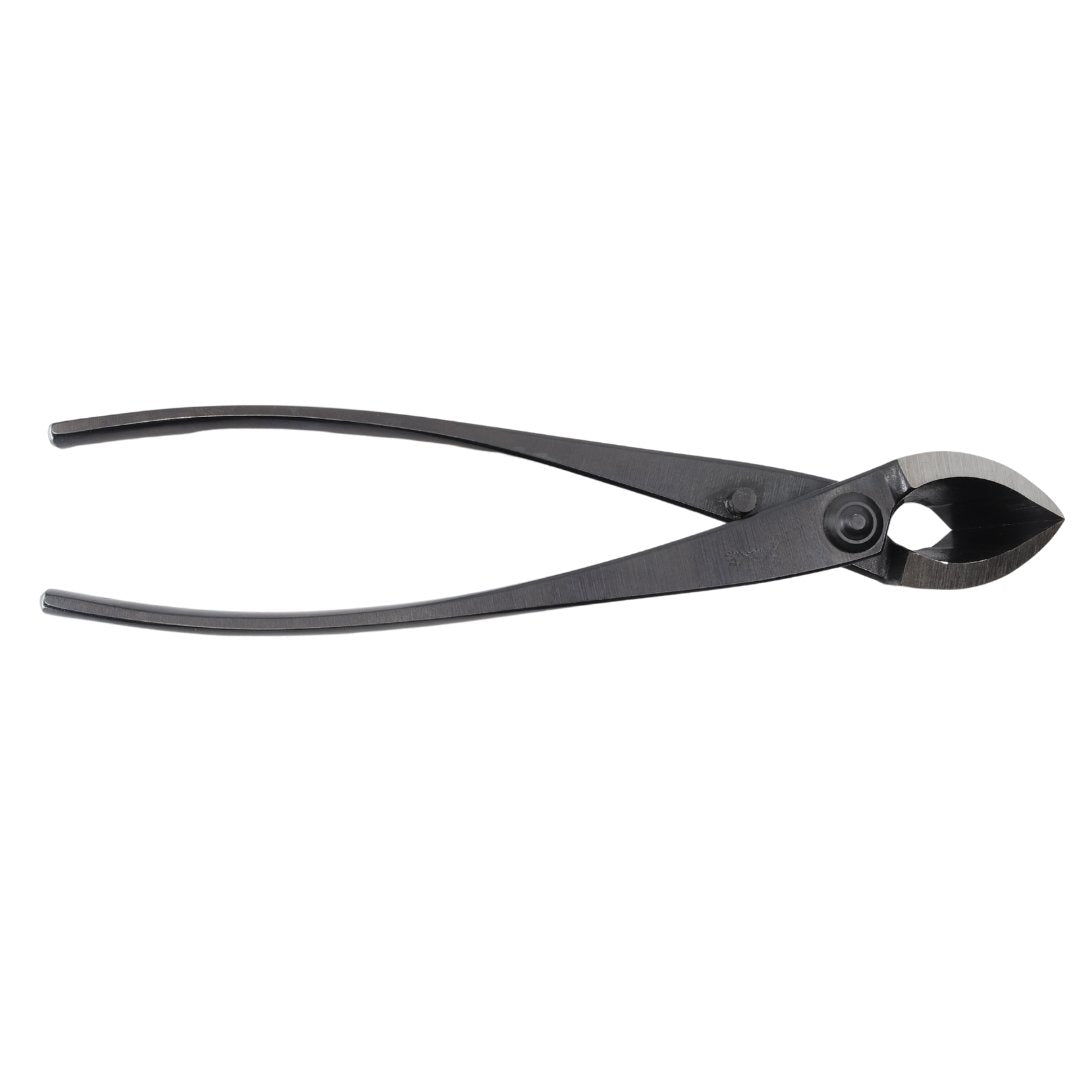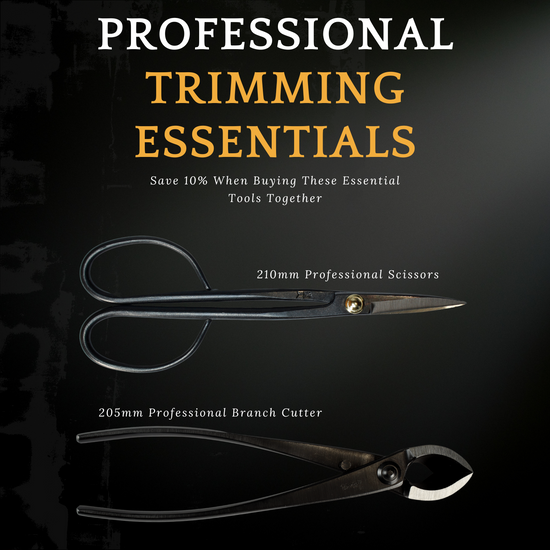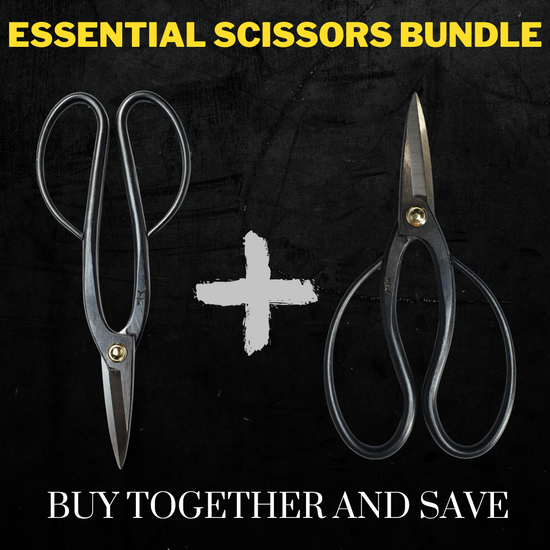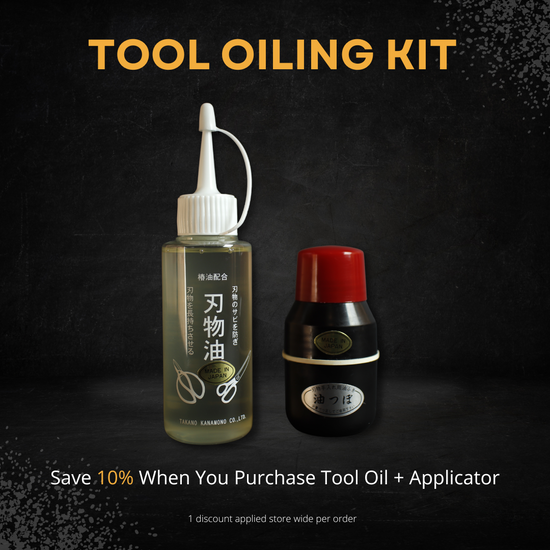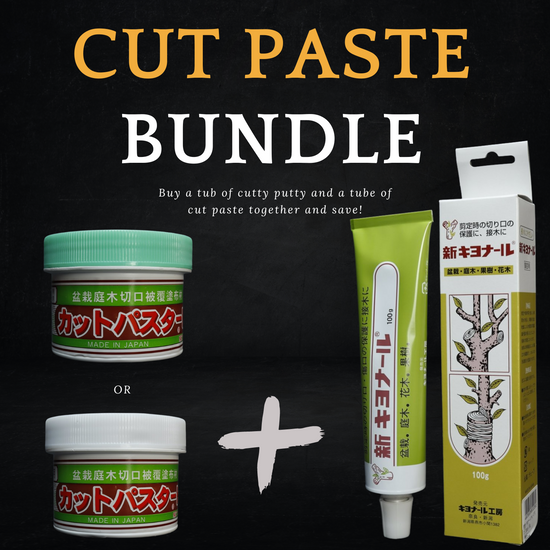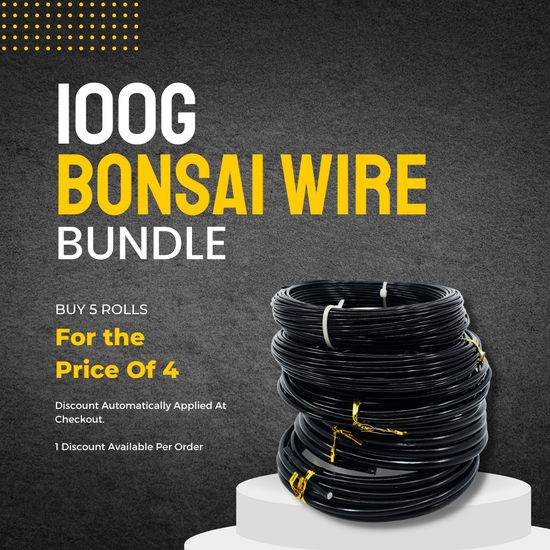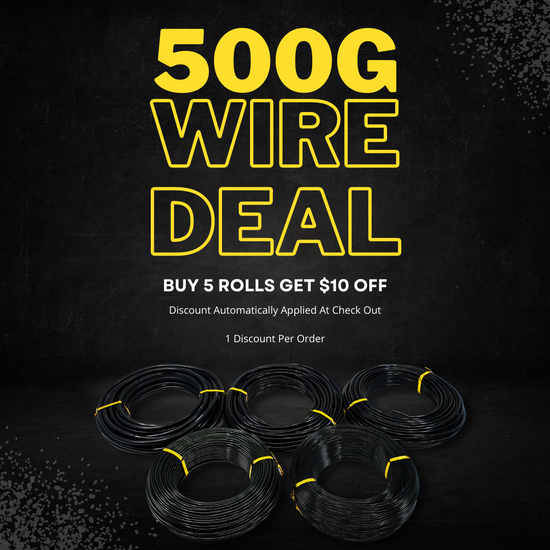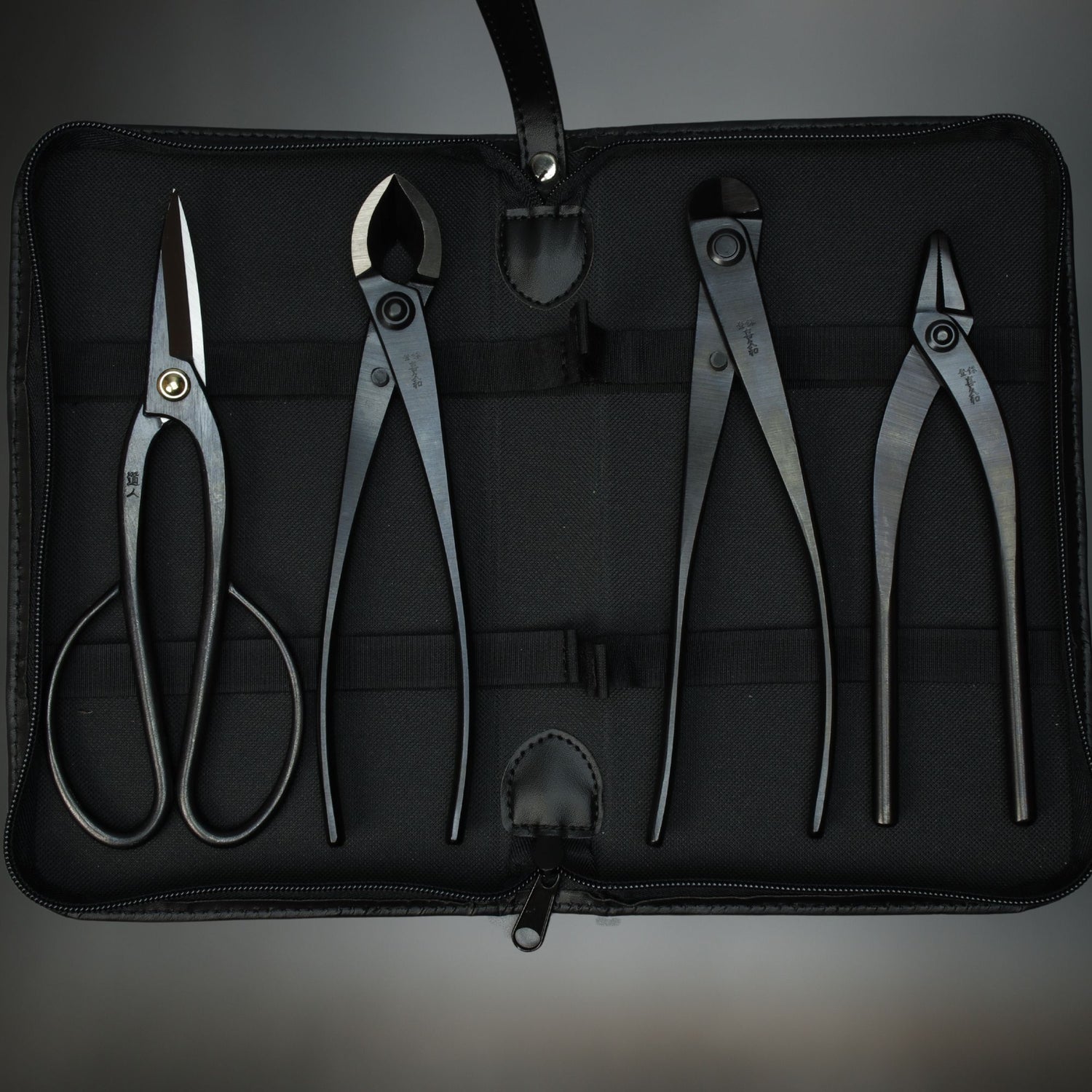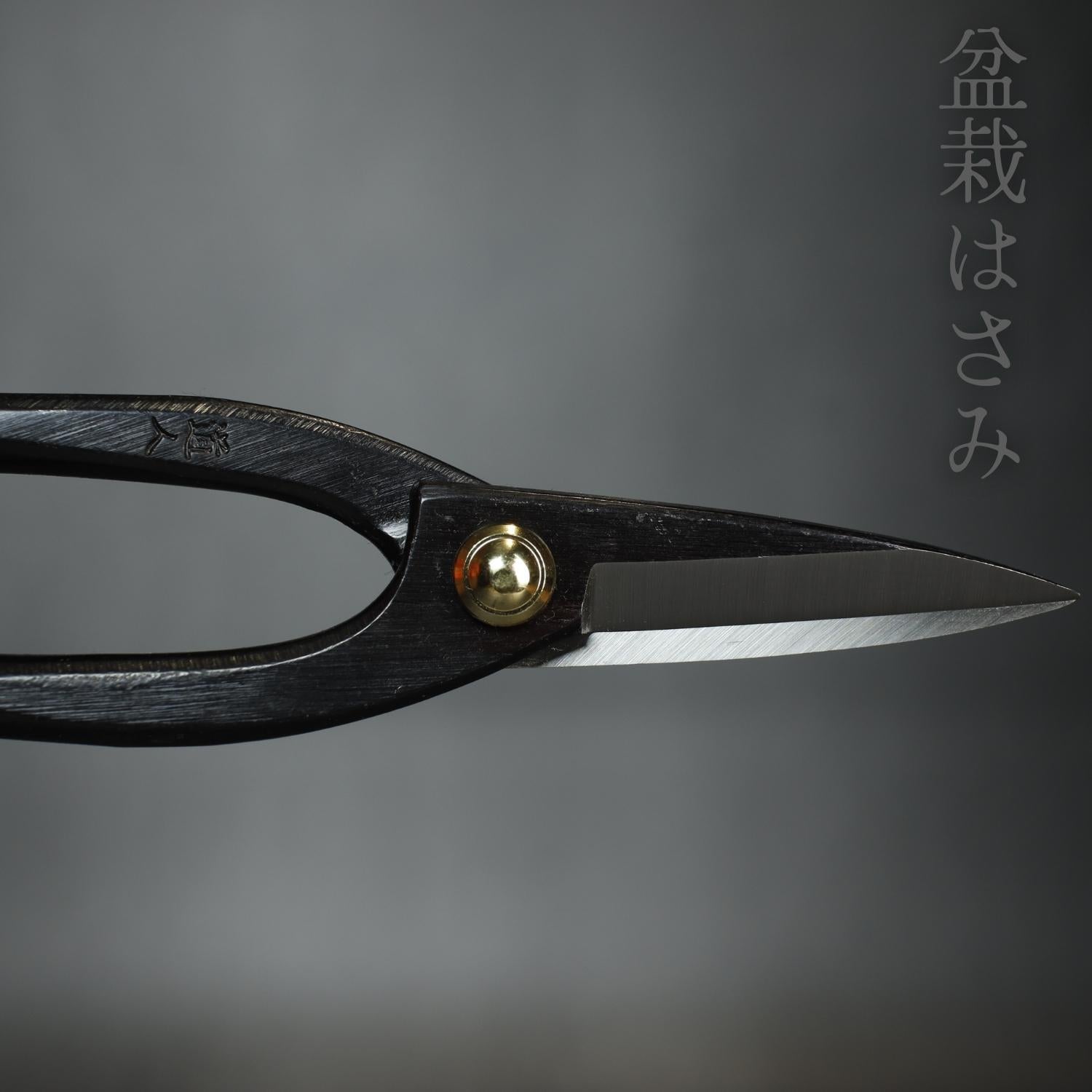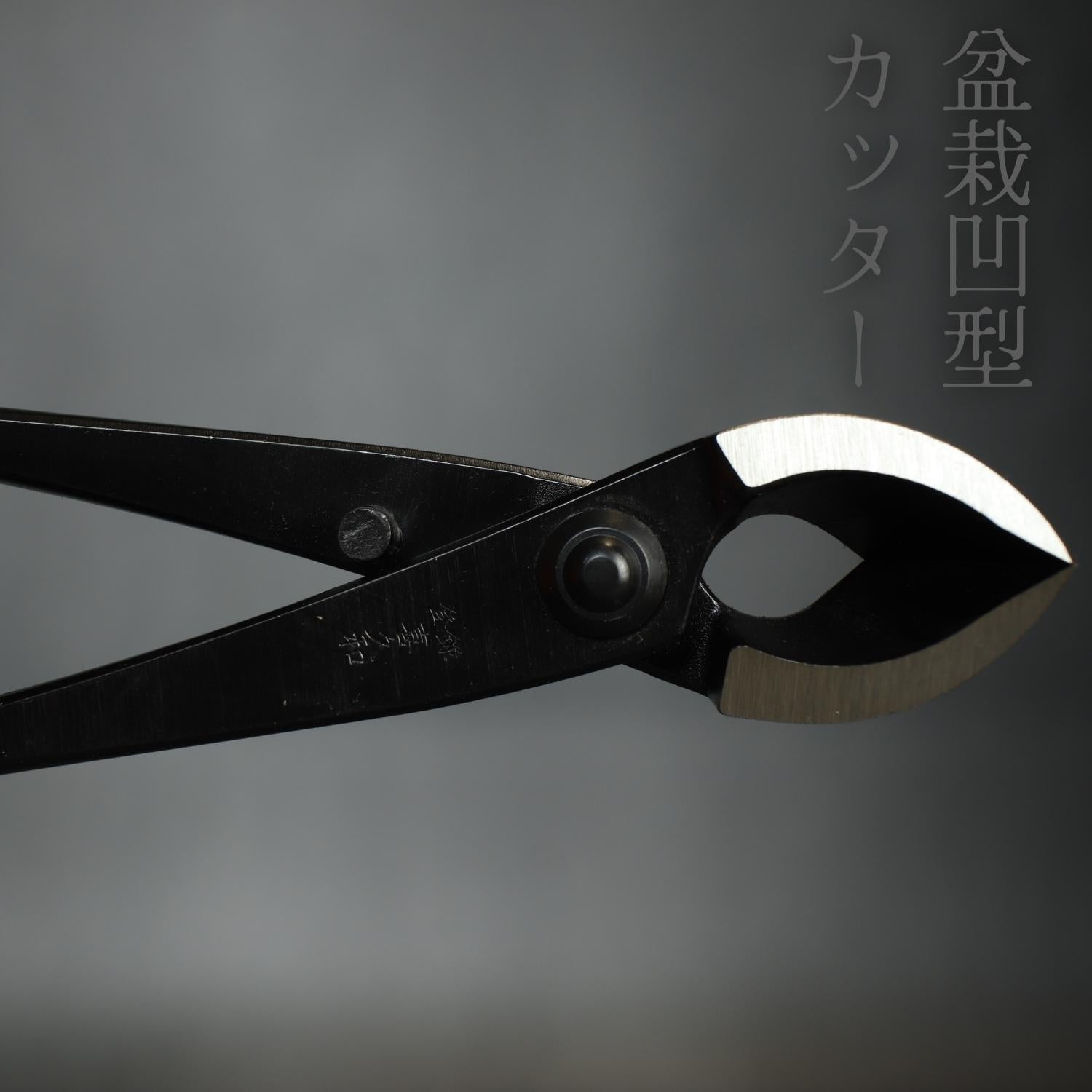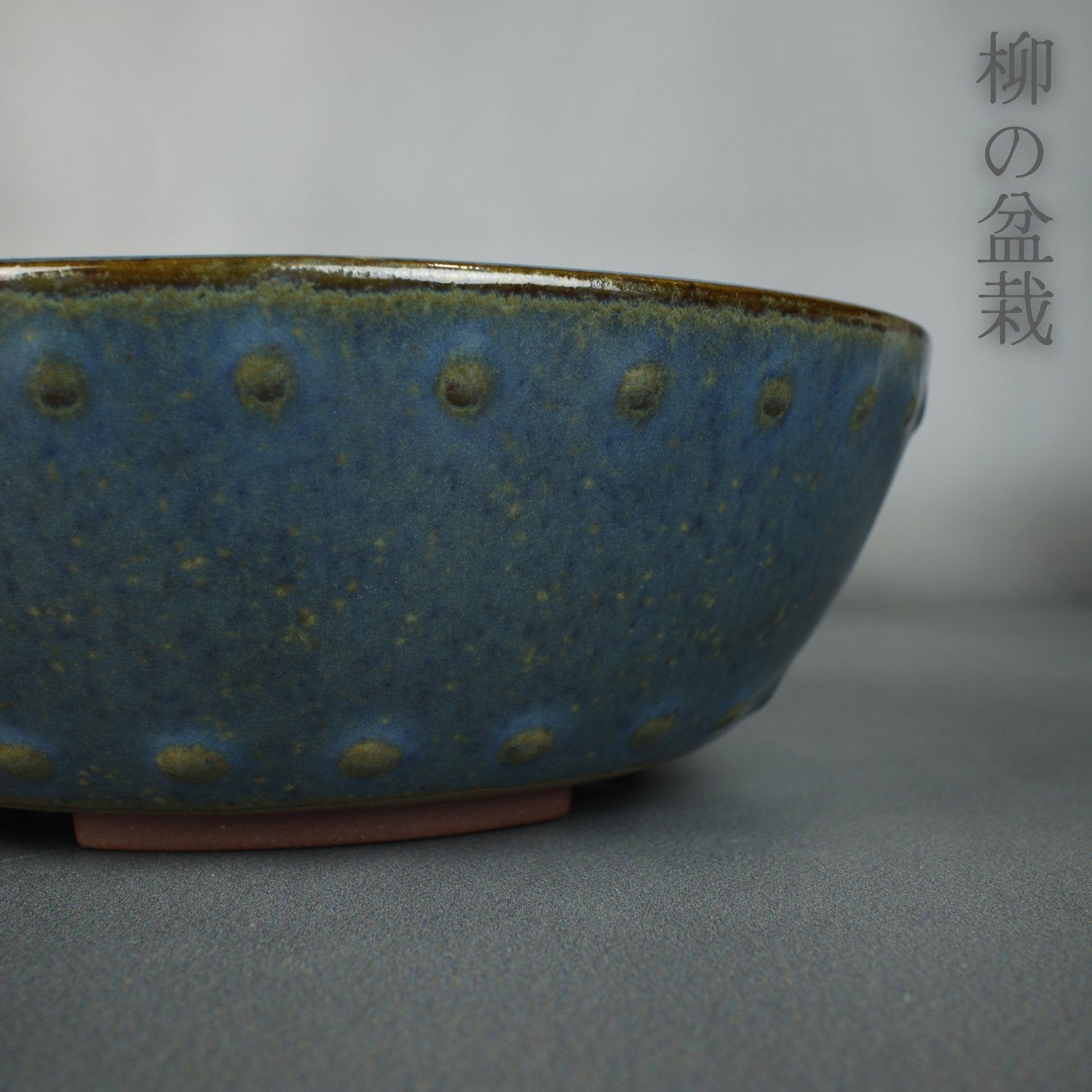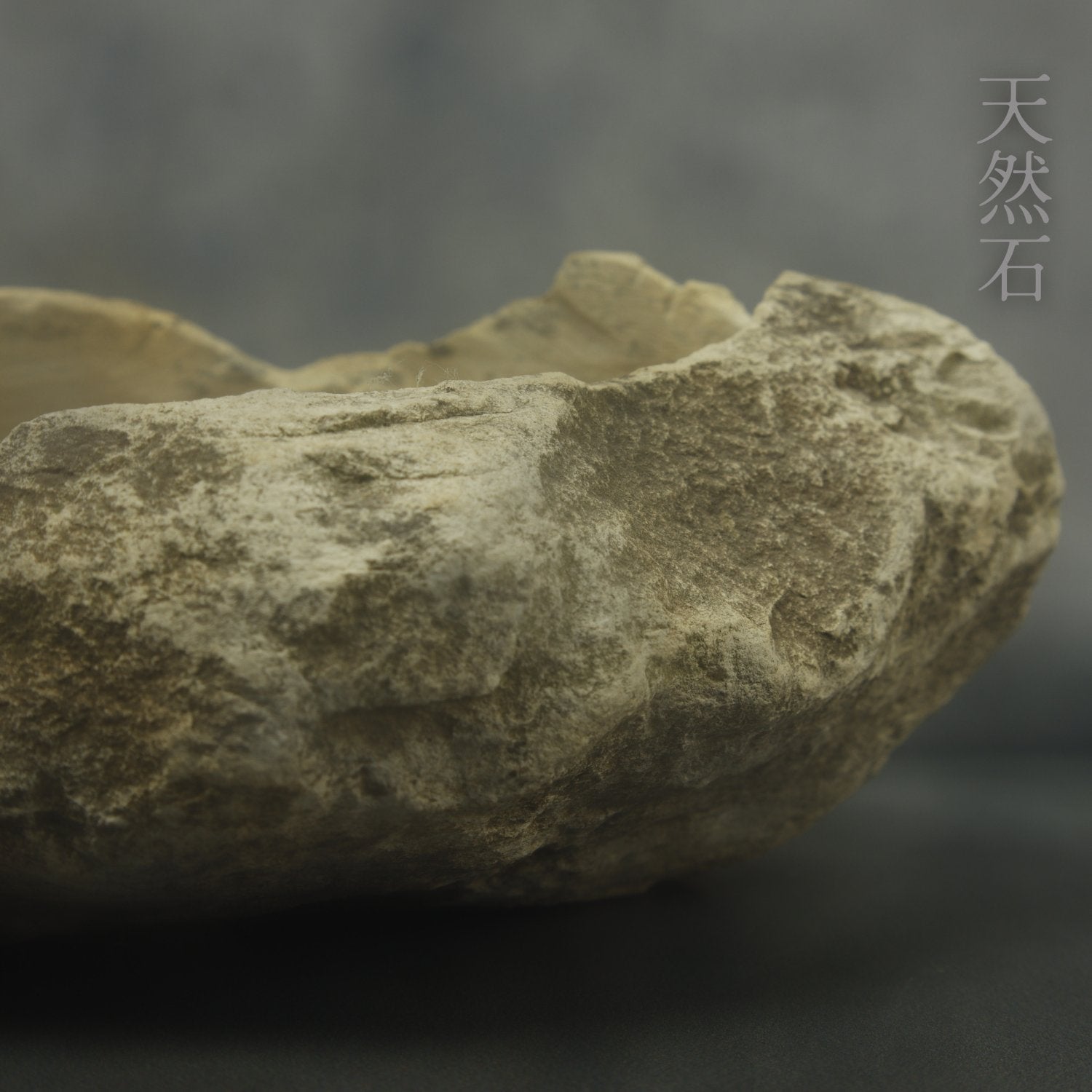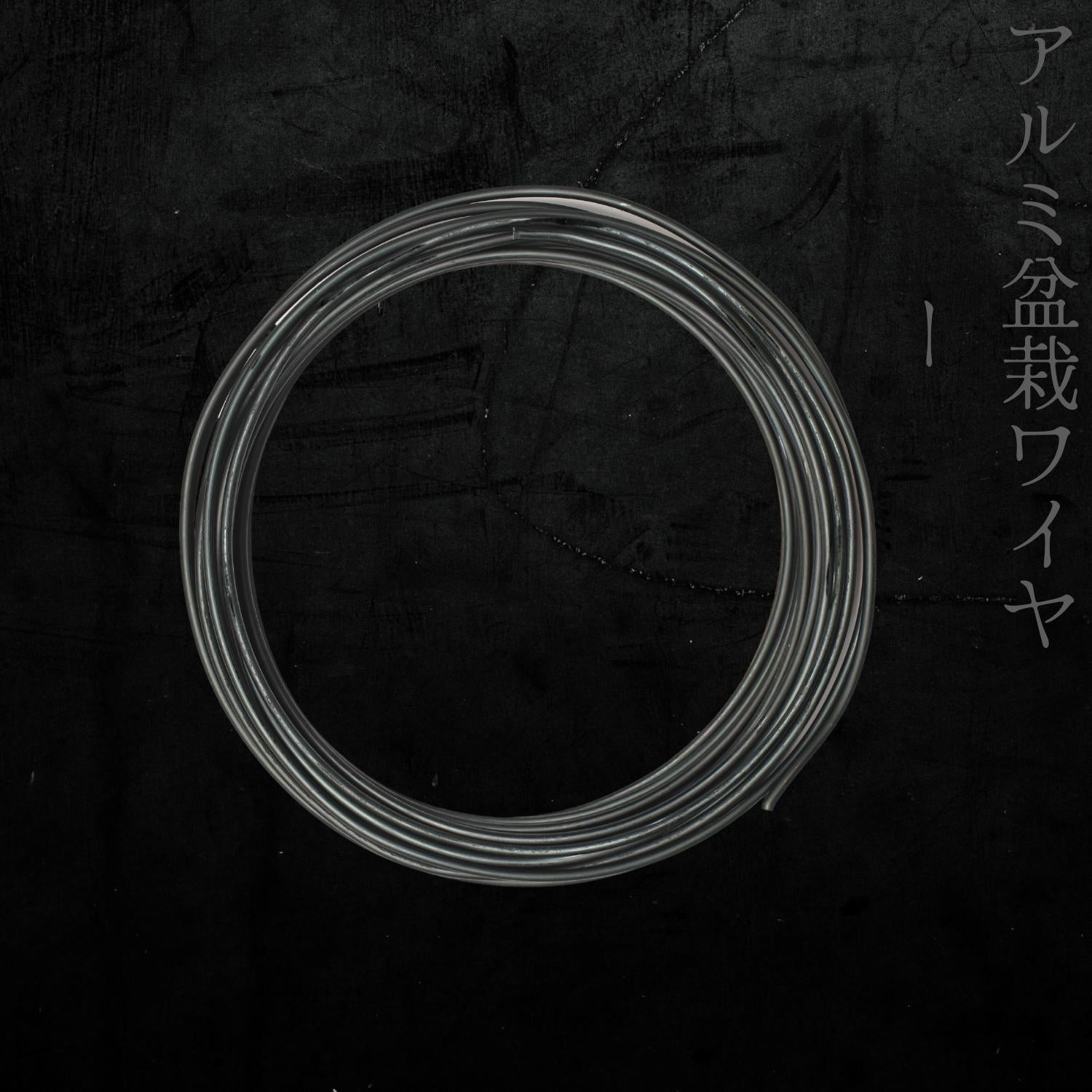
When we talk about some of the most essential tools for Bonsai the Bonsai Branch Cutter will always be on that list, Sometimes referred to as a Bonsai Concave Branch Cutter this tool is especially made for cutting larger diameter wood or branches on your Bonsai Tree. Because of this use case this tool is also the number one tool that will break if you buy a cheaper tool. The reason we dont just use our scissors to cut branches is because we need a tool that is not only razor sharp and precise so the healing process is expedited but we also need a tool that can handle a little bit of extra pressure and tension, this is where cheap alternatives of Bonsai branch cutters show their weakness and often fall apart, literally.
So what is it that we should look for in a good set of bonsai branch cutters?
Stainless Steel Vs Carbon Steel Bonsai Branch Cutters;
Carbon Steel Bonsai Branch Cutters

Japanese carbon steel is world renowned for its strength and capabilities for being able to be shaped into a razor sharp edge and being able to hold that edge for a long time. This is perfect for Bonsai Tools!. The down side to carbon steel though is that the higher the quality carbon steel you have the faster it will rust. A high end set of carbon steel bonsai tools will be covered in surface rust over night with just moisture left on them. So extra maintenance and care is required when owning these tools.
Now if the tool is a little bit more expensive say from the $40 - $60 range you will likely have a proper carbon steel but a lower quality carbon steel, This carbon steel will do the job fine for a good amount of time but it will fall apart when it comes time to give your tool a bit of a sharpen, this is where you are going to see the cheapness of the steel come through and you would honestly be better off buying a new set then trying to sharpen them, especially if you are trying to sharpen with a diamond stone or any diamond sharpening product. This will almost ruin your tool.
When it comes to Bonsai branch cutters i honestly wouldn't recommend spending anything less then $90 for a carbon steel set. You have to keep in mind that a good steel that will last and sharpen well is going to be more expensive just as a material alone, Then to have the tool well crafted on top of that will add a bit more of a premium to the price, but you are much better off paying a little bit more now then going through a few sets of cheapies before buying a good set, it will be much more expensive that way. I should also mention as well when it comes to tool pricing make sure you have some trust in the store you are purchasing from because any body who owns a store can put what ever price they want on a tool, so if you cant trust that the store is being honest with their pricing and quality of tools do some research.
PRO's : Very Strong, Very Sharp, Will stay that way for a long time
Con's : Will rust easy if not maintained
So what about stainless steel bonsai branch cutters?

Stainless Steel Branch Cutters have their pro's and their cons but like with everything you get what you pay for and the more knowledge you have the better you can make that decision for yourself. Stainless Steel is an expensive material in it self before it is even made into a tool, This is due to its non corrosive capabilities which will mean less stress when it comes to tool care. Stainless steel is also a weaker steel when compared to a high quality carbon steel though which means the blades will dull faster and the steel cant handle as many sharpening sessions as a carbon steel can before you remove enough material from the blades that they are un usable, i always recommend that people with stainless tools avoid diamond sharpening products at all costs, especially if you have a cheap stainless steel which we will talk about now.
Now when it comes to stainless steels if you are paying under $100 for stainless branch cutters RUN! . Like i mentioned in the carbon steel section there are good quality stainless steels and poor quality stainless steels. Now the poor quality stainless will be a similar price to the good quality carbon, so the good quality stainless steel is far more expensive then the good quality carbon. For example in our shop you can get a very high quality carbon steel branch cutter in the 205mm size for $99 but the same branch cutter in A8 stainless steel is $164.99 Check them out here https://bonsai-en.shop/products/kikuwa-205mm-stainless-steel-bonsai-branch-cutter .
Now a good quality stainless steel branch cutter will last a long time and will handle enough sharpening sessions that will probably last you till you retire from bonsai but you will pay a whole lot more for the tool just because of the raw material cost of stainless steel ( good quality stainless anyway ). The up side to stainless steel though is that it doesn't rust and most people are drawn to the shiny surface.
PRO's : The tools are easier to maintain and wont rust
CON's : Expensive steel = Expensive tool, Will dull quicker then carbon steel.
What Size Branch Cutters Do I Need?
There are a few different sizes of branch cutters ranging from 120mm - 270mm
But the 3x main sizes that are commonly used are;
170mm - Shohin Trees
https://bonsai-en.shop/products/kikuwa-205mm-bonsai-branch-cutters
205mm - Medium Size Trees / General Pruning
https://bonsai-en.shop/products/kikuwa-205mm-professional-bonsai-branch-cutters
270mm - Large Trees With Big Branches
https://bonsai-en.shop/products/kikuwa-bonsai-branch-cutter-xl-270mm
When it comes to size for branch cutters it is really up to the purchaser to match the size up too the trees they will be working on, if you own a lot of smaller bonsai it wont make sense to buy 270mm branch cutters, but if you have mostly medium size trees the 170mm will likely be too small. Most people start with the 205mm size, but once again it will come down to your collection of trees and their size.
Are There Different Types Of Branch Cutters?

